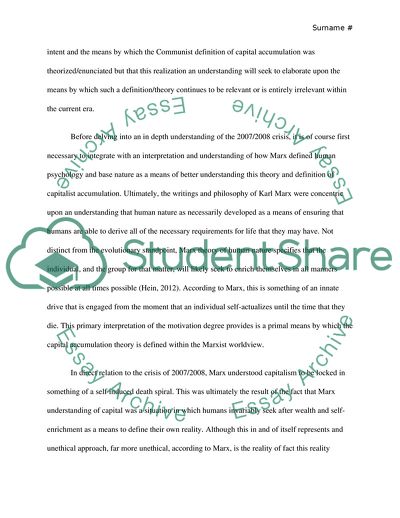Cite this document
(A Marxist Understanding of the Economic Crisis Literature review Example | Topics and Well Written Essays - 3000 words, n.d.)
A Marxist Understanding of the Economic Crisis Literature review Example | Topics and Well Written Essays - 3000 words. https://studentshare.org/macro-microeconomics/1814899-the-application-of-marxist-theory-to-shed-light-on-the-global-financial-crisis
A Marxist Understanding of the Economic Crisis Literature review Example | Topics and Well Written Essays - 3000 words. https://studentshare.org/macro-microeconomics/1814899-the-application-of-marxist-theory-to-shed-light-on-the-global-financial-crisis
(A Marxist Understanding of the Economic Crisis Literature Review Example | Topics and Well Written Essays - 3000 Words)
A Marxist Understanding of the Economic Crisis Literature Review Example | Topics and Well Written Essays - 3000 Words. https://studentshare.org/macro-microeconomics/1814899-the-application-of-marxist-theory-to-shed-light-on-the-global-financial-crisis.
A Marxist Understanding of the Economic Crisis Literature Review Example | Topics and Well Written Essays - 3000 Words. https://studentshare.org/macro-microeconomics/1814899-the-application-of-marxist-theory-to-shed-light-on-the-global-financial-crisis.
“A Marxist Understanding of the Economic Crisis Literature Review Example | Topics and Well Written Essays - 3000 Words”. https://studentshare.org/macro-microeconomics/1814899-the-application-of-marxist-theory-to-shed-light-on-the-global-financial-crisis.


